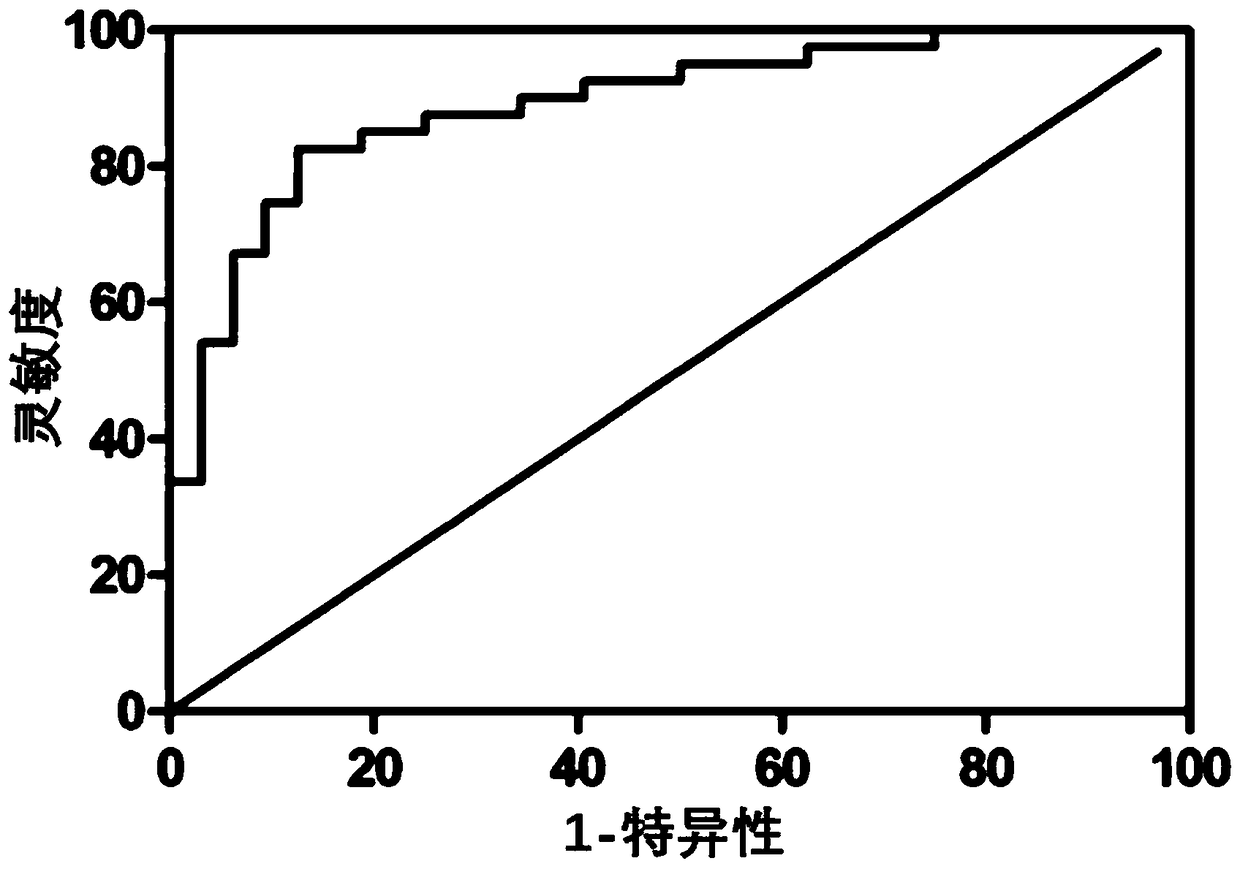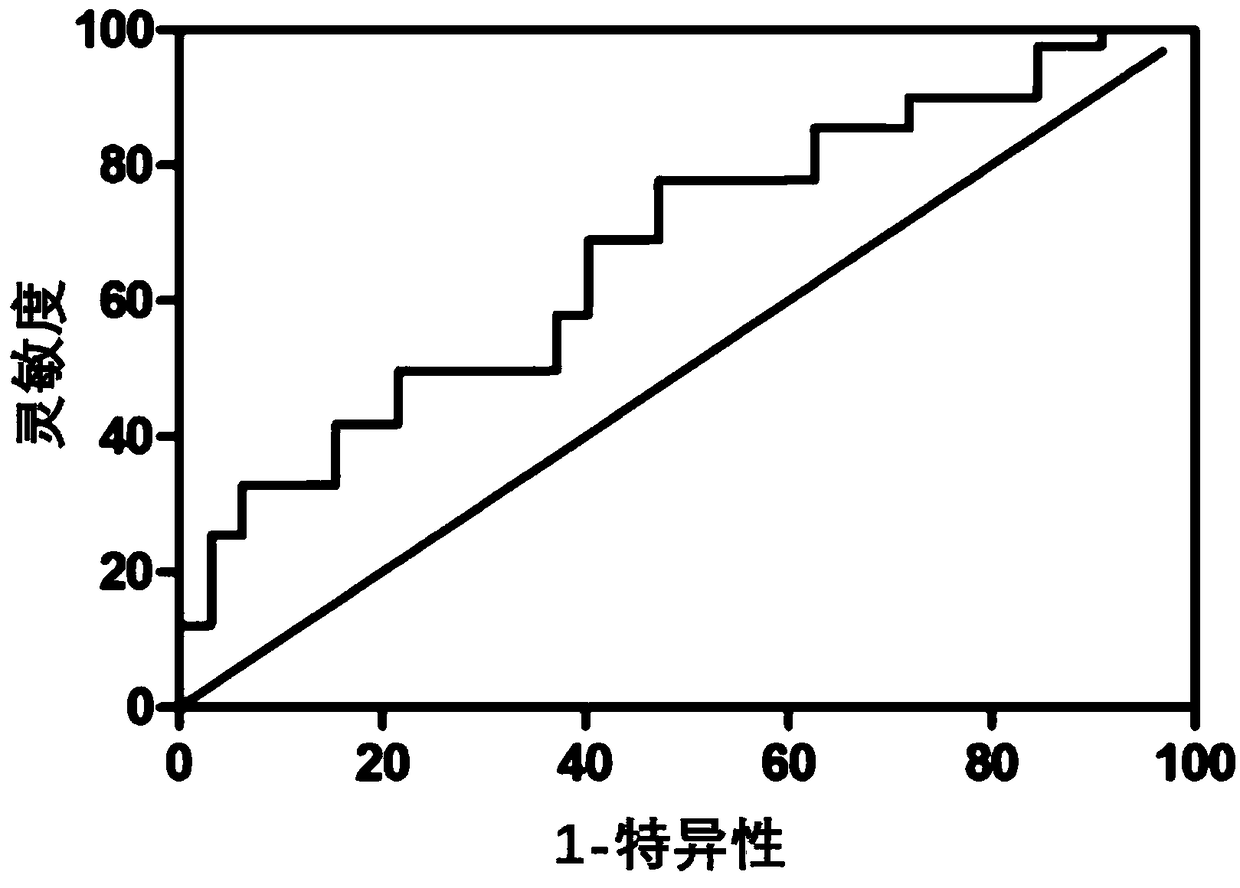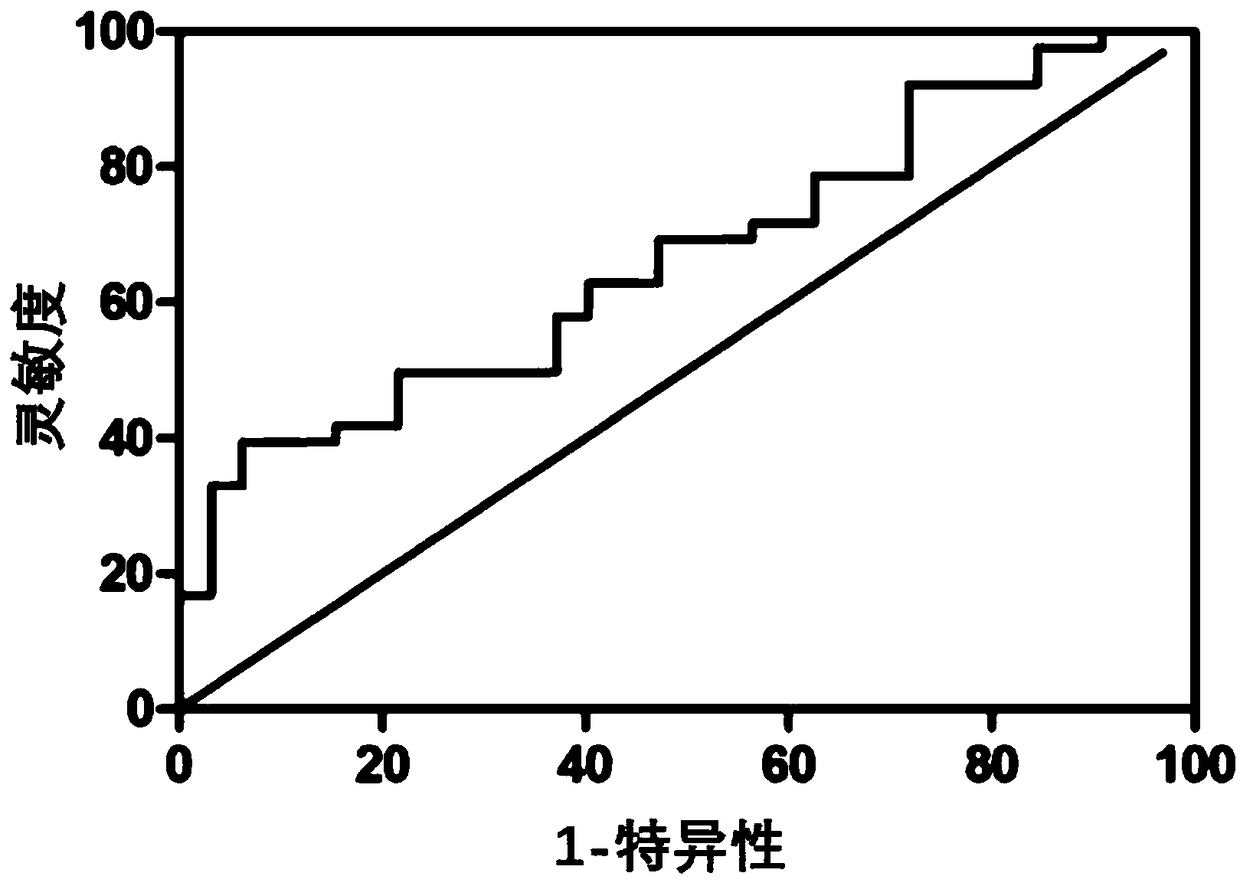A small molecular marker for predicting lymph node metastasis of lung cancer and its application in diagnosis
A technology for lymph node metastasis and lung cancer, applied in the field of precise diagnosis, can solve the problems of difficult detection of small lesions, high cost, and difficulty in obtaining materials
- Summary
- Abstract
- Description
- Claims
- Application Information
AI Technical Summary
Problems solved by technology
Method used
Image
Examples
Embodiment 1
[0019] Example 1: Accuracy of Small Molecular Markers in Predicting Lung Cancer Lymph Node Metastasis
[0020] 1. Materials and methods
[0021] 1. Research object
[0022] Patients in the lung cancer lymph node metastasis group and lung cancer non-lymph node metastasis group were hospitalized in Nanjing Drum Tower Hospital from March 2015 to December 2016. There were 60 cases in the lung cancer lymph node metastasis group, including 34 males, 26 females, and aged 38. -72 years old, with an average age of 45 years; there were 100 cases in the lung cancer non-lymph node metastasis group, including 62 males and 38 females, aged 35-70 years, with an average age of 43 years. All cases were confirmed clinically and pathologically. Patients in the lung cancer lymph node metastasis group and lung cancer non-lymph node metastasis group were randomly divided into two groups, one was the training set and the other was the validation set. The grouping results are as follows.
[0023] ...
Embodiment 2
[0052] Embodiment 2: Diagnostic kit
[0053] A diagnostic kit for early prediction of lymph node metastasis in lung cancer, including phosphatidylinositol (18:3 / 0:0), lysophosphatidylcholine (18:1), phenylalanine and L-2-chloro Phenylalanine, phosphatidylinositol (18:3 / 0:0), lysophosphatidylcholine (18:1), and phenylalanine were used as reference substances to qualitatively locate the target compound in the serum to be tested, L-2 -Chlorophenylalanine was used as an internal standard and added to the serum sample to be tested for relative quantification of lysophosphatidylcholine (18:1), phosphatidylinositol (18:3 / 0:0), and phenylalanine.
PUM
 Login to View More
Login to View More Abstract
Description
Claims
Application Information
 Login to View More
Login to View More - R&D
- Intellectual Property
- Life Sciences
- Materials
- Tech Scout
- Unparalleled Data Quality
- Higher Quality Content
- 60% Fewer Hallucinations
Browse by: Latest US Patents, China's latest patents, Technical Efficacy Thesaurus, Application Domain, Technology Topic, Popular Technical Reports.
© 2025 PatSnap. All rights reserved.Legal|Privacy policy|Modern Slavery Act Transparency Statement|Sitemap|About US| Contact US: help@patsnap.com



